SMS is dead. Long live… SMS?
SMS is dead. Long live… SMS? In this article we take a look at the evolving landscape of SMS Marketing, for the past ten years, SMS has been a hot topic of contention for marketers. With the advent and rise of social media companies like FaceBook & Twitter, not to mention the titan WhatsApp (itself acquired by FaceBook in 2015), the value of marketing communication by SMS has been fiercely debated.
Some have insisted it’s gone into decline, with open APIs into social messengers a far-off dream on the horizon. Others have relied on it even more than before, experiencing SMS open rates consistently higher than its sister channel, the push message.
It’s a complicated question though, the success or failure of your SMS channel depends on so many factors: country/culture you are sending to, business/vertical, customer demographics, even time of day, day of week, time of year.
In China for example, SMS is looked upon as the most trusted communication medium, with the Great Firewall of China very much in the back of people’s minds when sending/receiving email, it’s easy to see why. In the developing world where smartphones, tablets and computers are much less common, SMS can be the only channel with which to communicate to your customers.
Looming upon us all now is the spectre of FaceBook’s long-awaited monetization of WhatsApp. Paid ads are-a coming, which while it may be set to make FaceBook hundreds of millions in long awaited revenue (WhatsApp reported $138 million in losses the year before FaceBook acquired them for $16 billion), nonetheless makes the marketplace very, very nervous.
There are a few reasons for that nervousness.
FaceBook have been incredibly cautious about their upcoming advertising monetization of WhatsApp. It’s been more than three years since they started running trials with companies like Uber, and 2017 saw the sensational high profile resignation of WhatsApp co-founder Brian Acton over this very issue. The very profound risk is that the adverting will switch users off, and away from WhatsApp. Twitter and FaceBook messenger already heavily market to their users, so there’s no solace there.
Another reason is that of coverage. While WhatsApp may well be on hundreds of millions of smartphones, it’s not on every single one. “SMS is still the only way to reach 100% of the world’s phones,” said Commify’s chief executive, Geoff Love in a recent Forbes interview.
For these and other related reasons, it’s easy to see why SMS might be making a comeback, if indeed it ever left.
In a recent study by research firm MobileSquared, it showed that mobile operators generated almost $9 billion in hosted business message sales, and is predicted to grow by 84% by 2022.
In the world of Acoustic, the SMS channel capabilities are second to none, allowing deeply personalised, custom, scheduled messages to be dispatched to customer inboxes on demand, all as part of large multi-wave, multi-channel programmatic activity.
Get in touch to discuss how you can get the most from your SMS channel.
Sources :
https://www.forbes.com/sites/parmyolson/2018/11/21/faceBooks -revenue-dreams-for-whatsapp-are-under-t…
https://www.slideshare.net/nicklane2004/global-a2p-sms-messaging-forecasts-by-country-20172022
https://www.investopedia.com/articles/investing/032515/whatsapp-best-faceBook-purchase-ever.asp
Like what you see?
Subscribe to our newsletter for customer experience thought leadership and marketing tips and tricks.




